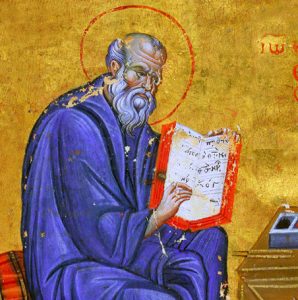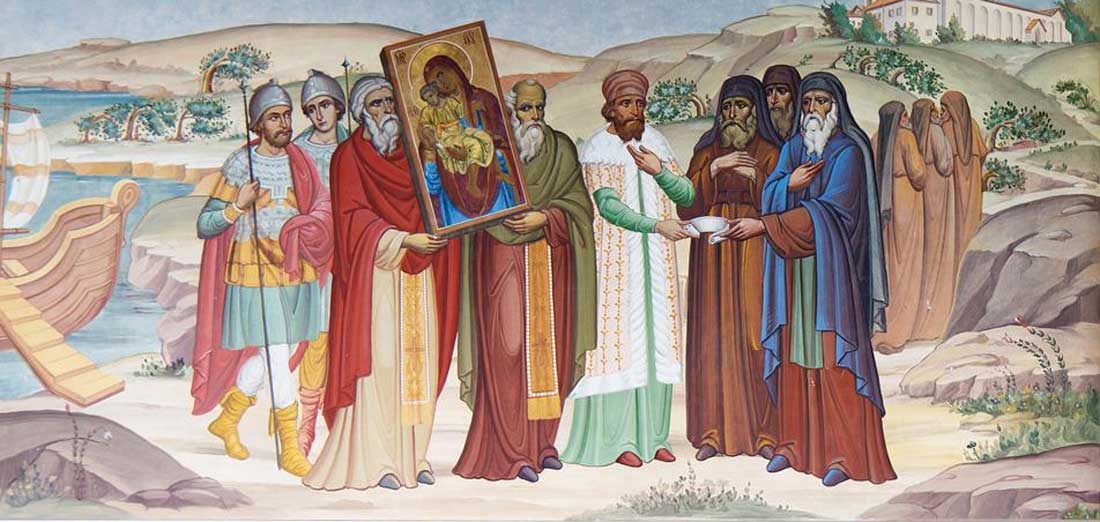Saint John the Evangelist Biography, Greek Orthodox Saints
 Saint John the Evangelist was one of the twelve apostles and “the beloved disciple” Jesus. His memory is commemorated every year on May 8 and September 26.
Saint John the Evangelist was one of the twelve apostles and “the beloved disciple” Jesus. His memory is commemorated every year on May 8 and September 26.
John was the son of Zebedee and Salome and the brother of the Apostle James and before he was called to the apostolic office he was a fisherman by profession. John together with Peter and his brother James was always in the first row of the Apostles and he alone followed Jesus Christ to the Cross and then took the Virgin Mary under his protection.
After the destruction of Jerusalem by the Romans (70) he settled in Ephesus and from there he was later exiled to Patmos, where, according to tradition, he wrote the book of Revelation. From Patmos he returned to Ephesus, where he stayed and died peacefully in a very old age about the year 100.
In the last years of his life he repeated the same phrase to everyone: “my children, love one another”. They asked him why this is all he constantly says, and he answered that it is the Lord’s command and that is enough.
John wrote the fourth Gospel, which begins with the well-known words “In the beginning was the Word…” and deals with the divinity of the Divine Word, that is, Jesus Christ. For this reason, John the Evangelist is also called Theologian by the Church.
The New Testament, in addition to the Gospel and the Apocalypse, also includes the three Catholic Epistles, written by John. In all his works, more than the other Evangelists and Apostles, he preaches love, which is why, along with the other titles, he is also called the Evangelist of love.
On the feast day of St. John the Theologian (May 8), the farmers did not work so that hail would not fall and destroy the harvest. In many parts of Greece, May is called “Hail” or “Vrocharis”, because that’s when it happens to hail or rain.
It should be noted that in many regions of Greece the rain in May is considered destructive for agriculture. Related is the proverb “In the land of sinners, the month of May rains”, also known with the variant “In the cursed place, the month of May rains”. The holiday was also observed the following day, the feast of Saint Christopher.
